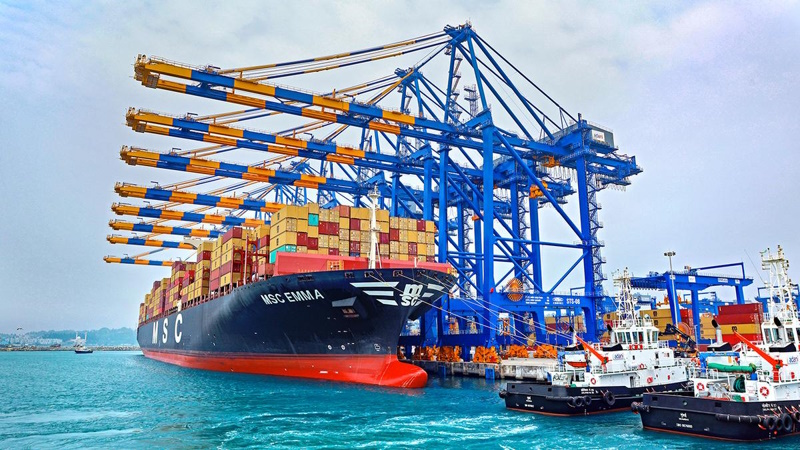 Russian troops on Friday approached the strategic city of Severodonetsk in a sustained offensive to control the eastern Donbass region of Ukraine, sparking a historic rift between the Ukrainian Orthodox Church and its Russian Patriarchate.
Russian troops on Friday approached the strategic city of Severodonetsk in a sustained offensive to control the eastern Donbass region of Ukraine, sparking a historic rift between the Ukrainian Orthodox Church and its Russian Patriarchate.
Pro-Russian separatists said they had captured the town of Lyman between Severodonetsk and Kramatorsk, on the road leading to the key cities still under Kyiv s control.
Russian forces were also closing in on Severodonetsk and Lysychansk in the Lugansk province, with conflicting reports about the extent of their advance.
To further help Ukraine fight back against the invasion, Washington was preparing to send advanced long-range rocket systems, according to US media reports.
Mykhaylo Podolyak, an advisor of Ukraine President Volodymyr Zelensky, referring to the rocket systems, said on Twitter that some of the country s partners “avoid giving the necessary weapons because of fear of the escalation. Escalation, really?”
Pentagon Spokesman John Kirby would not confirm the plans to deliver the M270 Multiple Launch Rocket System (MLRS) to Ukraine.
“We are still committed to helping them succeed on the battlefield,” he said.
– Historic schism –
The war caused the Moscow-backed branch of Ukraine s Orthodox Church to sever ties with Russia Friday, in a historic move against the Russian spiritual authorities.
A church council that focused on Russia s “aggression” condemned the pro-war stance of Patriarch Kirill of the Russian Orthodox Church and declared “full independence”.
“Not only did he (Kirill) fail to condemn Russia s military aggression but he also failed to find words for the suffering Ukrainian people,” church spokesman Archbishop Kliment told AFP.
Ukraine has been under Moscow s spiritual leadership since at least the 17th century, but part of the Ukrainian Orthodox Church broke with Moscow in 2019 over Russia s annexation of Crimea and support for separatists in Donbas.
– Severodonetsk surrounded –
Three months after Russia launched its invasion on February 24, leaving thousands dead on both sides and forcing 6.6 million Ukrainians out of the country, Moscow has gained control over a wide swathe of eastern and southern Ukraine, including port cities Kherson and Mariupol.
“Russian forces have made steady, incremental gains in heavy fighting in eastern Ukraine in the past several days, though Ukrainian defenses remain effective overall,” said the US-based Institute for the Study of War.
A Lugansk police official, cited by Russia s state news agency RIA Novosti, said Severodonetsk was “now surrounded” and Ukrainian troops could no longer leave the city.
That was denied by senior city official Oleksandr Stryuk, though he acknowledged the situation was “very difficult” with incessant bombing.
“People are willing to risk everything to get food and water,” said Oleksandr Kozyr, the head of the main aid distribution centre in Lysychansk.
“They are so psychologically depressed that they are no longer scared. All they care about is finding food,” he said.
Meanwhile, around 10 people were killed in Russian strikes on a military facility in the central city of Dnipro, the regional head of the national guard said.
– EU debates oil embargo –
Zelensky will speak with EU leaders at an emergency summit Monday as they try to agree on an embargo on Russian oil, which is being held up by Hungary, whose Prime Minister Viktor Orban has close relations with Putin.
In Moscow, Finance Minister Anton Siluanov said the country expects to receive one trillion rubles ($14.4 billion) in additional oil and gas revenues this year, a windfall from the sharp rise in oil prices caused in part by its invasion of Ukraine.
“Rather than continue trading with (Russia), we need to act until they stop their policy of aggression,” Zelensky told a think tank in Indonesia.
– Grain exports still blocked –
As his navy blockades Ukrainian ports, Russian President Vladimir Putin rejected accusations that he was using food as a weapon.
Russia and Ukraine supply some 30 percent of the wheat traded on global markets.
Russia has tightened its own exports and Ukraine has vast amounts stuck in storage, driving up prices and cutting availability for importers across the globe.
But in a call Friday with Austrian Chancellor Karl Nehammer, Putin blamed “anti-Russian sanctions by the United States and the European Union, among other things,” according to the Kremlin.
He also accused Kyiv of “sabotaging” negotiations and urged Ukraine to de-mine ports “as soon as possible” to allow the passage of grain-carrying vessels, the Kremlin said.
Nehammer said the Russian president had “given signals that he is quite willing to allow exports via the seaports”.
“The real willingness will only become apparent when it… is actually implemented,” he added.
(AFP)





